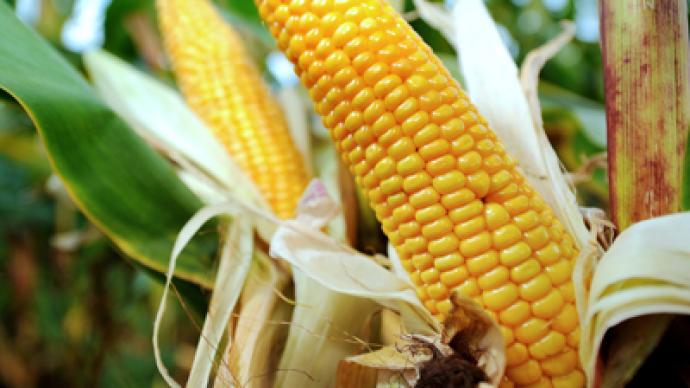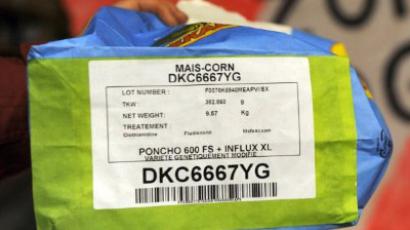Farmers demand an appeal in Monsanto GMO case

A group of farmers are in Washington, DC this week to demand that the federal court reconsiders a case against biotech giants Monsanto.
Last February, District Court Judge Naomi Buchwald dismissed a lawsuit filed by the Organic Seed Growers and Trade Association in which the plaintiffs sought legal protection from Monsanto, a billion-dollar corporation that has grown exponentially in recent years to become a dominating figure in the American agricultural market. Small time farmers say there is a reason for that, though, and they want the courts to do something about it.Before Judge Buchwald rejected their plea, the plaintiffs wanted the government to step in to make sure small time farmers would no longer be sued by Monsanto, a company that has introduced a number of lawsuits in recent years against independent growers. In addition to being a titan in the agricultural field, Monsanto is also known for patenting genetically modified seed types that can spawn crops that rival the ones made by Mother Nature. While those products are a hot commodity among some farmers, others aren’t fortunate enough to add them to their fields. That isn’t to say the occasional wind gust or other method doesn’t move those GMO seeds onto unlicensed farms, though, and Monsanto has spent millions to sue farmers that infringe, even accidently, on their costly patent.When the plaintiffs hoped for federal protection last year, Judge Buchwald told them it wouldn’t be possible. This week, however, the Organic Seed Growers and Trade Association is back in the nation’s capital to file an appeal.“The District Court erred when it denied the organic seed plaintiffs the right to seek protection from Monsanto’s patents,” Dan Ravicher, an attorney representing plaintiffs with the Public Patent Foundation, says in a statement. “At the oral argument on January 10, we will explain to the Court of Appeals the District Court’s errors and why the case should be reinstated.”Carol Koury, a farmer that operates Sow True Seeds in Asheville, North Carolina, made the trek to Washington this week to show support. Before any news emerged from federal court, though, she was outside the White House to rally for justice."We want and demand the right of clean seed not contaminated by a massive biotech company that's in it for the profit," Koury told the St. Louis Post-Dispatch. She was joined by around 200 others outside of the president's residence Thursday morning.In Judge Buchwald’s original ruling, the justice stated, "there is no evidence to suggest that plaintiffs are infringing defendants' patents, nor have plaintiffs suggested when, if ever, such infringement will occur.” In Washington this week, though, the Public Patent Foundation’s Ravicher directly challenged that decision."If our clients don't have standing today to seek protection, when will they have standing? Do they have to wait to be contaminated?" he asked.Commenting on the case in an official statement, Monsanto says attempts to drag them back into court are without merit.“The district court ruling dismissing this case noted it was simply a transparent effort by plaintiffs to create a controversy where none exists,” says Tom Helscher, Monsanto’s director of corporate affairs. “Farmers who have no interest in using Monsanto’s patented seed products have no rational basis to fear a lawsuit from Monsanto, and claims to the contrary, to quote from the district Court, are ‘groundless’ and ‘baseless.’ As was stated in the court, it has been, and remains, Monsanto’s policy not to exercise its patent rights where trace amounts of our patents are present in a farmer’s fields as a result of inadvertent means.”When Ravicher was in court last year to take on Monsanto, he said something quite the opposite.“It seems quite perverse that an organic farmer contaminated by transgenic seed could be accused of patent infringement, but Monsanto has made such accusations before and is notorious for having sued hundreds of farmers for patent infringement, so we had to act to protect the interests of our clients,” the attorney insisted.Monsanto announced earlier this month that profits during the first quarter of fiscal year 2013 had more than doubled. Pierre Courduroux, the company’s chief financial officer, tells Bloomberg he expects a gross profit in 2013 of $7.65 billion for the company.














